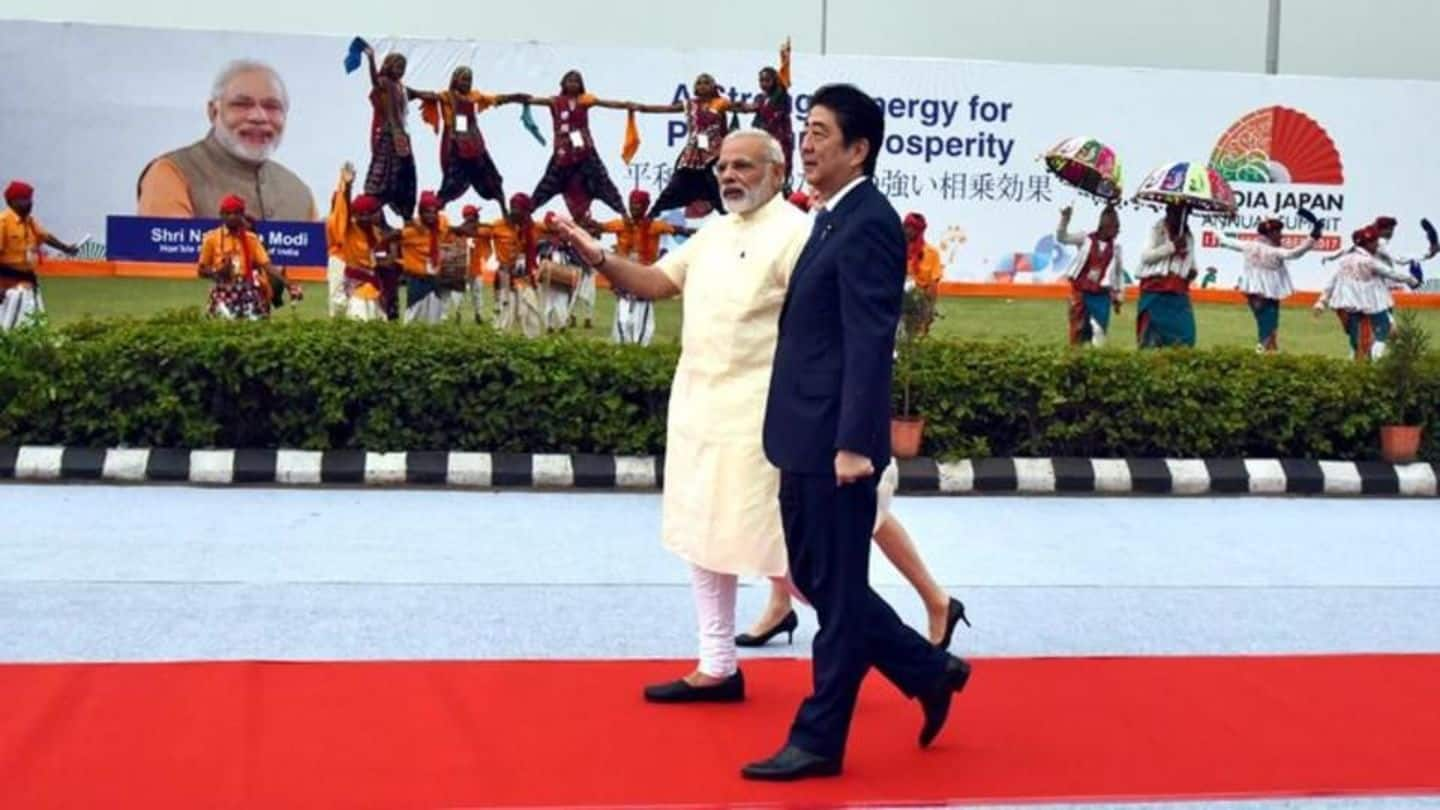
Modi-Abe slam Pakistan over terrorism in joint statement
What's the story
After inaugurating India's first bullet train project, Indian PM Narendra Modi and his Japanese counterpart Shinzo Abe strongly pitched for a "zero tolerance" policy against terrorism. In a joint statement, both leaders asked Pakistan to bring to justice the perpetrators of the 2008 Mumbai and the 2016 Pathankot attacks. The two also agreed to strengthen defense, trade and infrastructure ties.
On terrorism
Abi-Modi condemn terror in the "strongest terms"
Both Abe and Modi condemned in the "strongest terms" the growing threat of terrorism. They agreed to strengthen cooperation against groups such as the Pakistan-based Jaish-e-Mohammed (JeM) and Lashkar-e-Taiba (LeT). They also called on other countries to cooperate and work towards rooting out terrorist safe havens, networks, financing channels and cross-border movement. The statement is an apparent reference to Pakistan.
Information
Abe 'welcomes India's stand on North Korea'
Japanese PM Shinzo Abe welcomed "India's stand on North Korea." The North's recent H-bomb and nuclear-capable ballistic missile tests are seen by Japan as a major security threat. Abe also called for a stricter enforcement of a UN resolution against the North's nuclear program.
Defense
Eye on China, India-Japan look to expand military cooperation
Indian Foreign Secretary S. Jaishankar said so far Indo-Japan military cooperation and exercises has mainly focussed on the navy-to-navy maritime front. This will now be expanded to exercises between the armies and air forces of both countries. Growing military ties between India and Japan are crucial as they both confront an increasingly assertive China. Both India and Japan remain wary of China's intentions.
Agreements
India-Japan sign 15 agreements to boost cooperation
India and Japan have signed 15 agreements to boost cooperation across various sectors. Both countries have agreed to collaborate on disaster risk reduction and prevention. They have agreed to improve connectivity and promote infrastructure projects in northeast India. An Open Sky agreement was signed, allowing Indian and Japanese carriers to mount an unlimited number of flights to certain cities in each other's country.
Science and technology
India-Japan agree to increase joint research in science and technology
Both India and Japan have agreed to create a Joint Exchange Program to allow young scientists to collaborate in the field of theoretical biology. They also signed a pact to establish a new center for joint research in environmental technology. A third pact promotes cooperation in the fields of life science and biotechnology research.